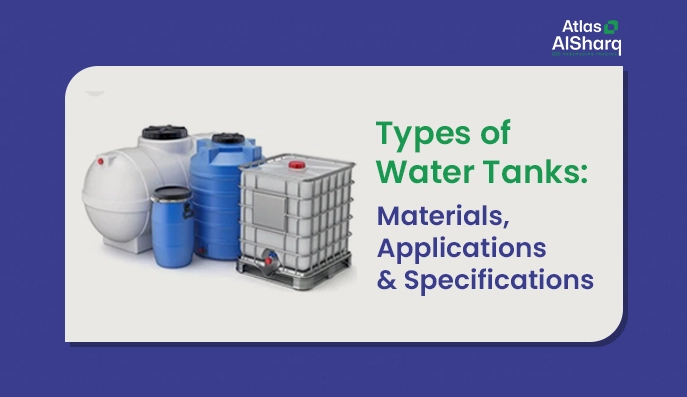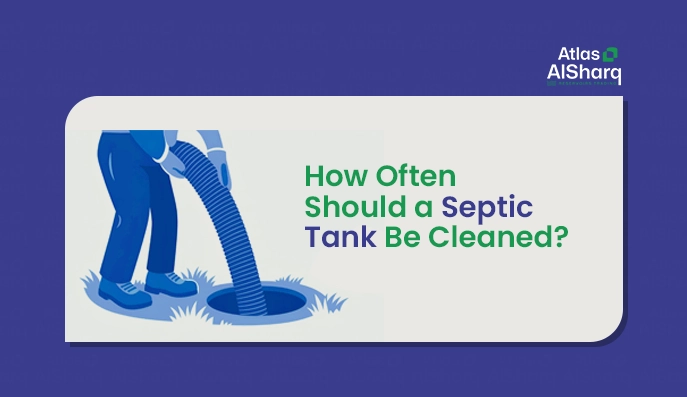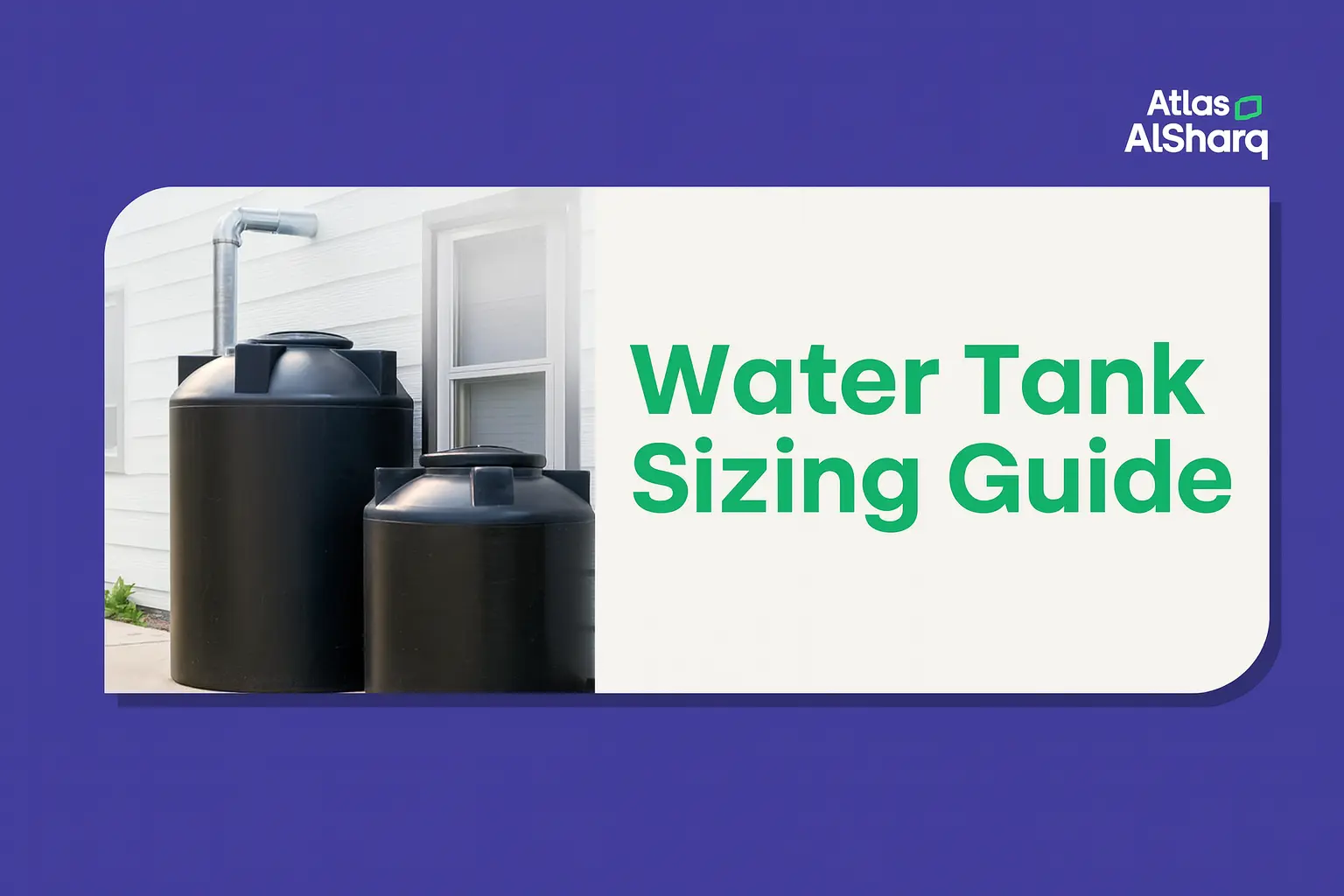Types of Water Tanks: Materials, Applications & Specifications
August 26, 2025
|Water Tank

Table of Contents
- Understanding Water Storage Fundamentals
- Material-Based Water Tank Classifications
- Looking for modular solutions?
- Application-Based Tank Categories
- Concerned about water quality?
- Comparative Analysis: Making the Right Choice
- Water Tank Types: Pros and Cons Summary
- Selection Guidelines and Best Practices
- Choose the right water tank for your needs with confidence
- Conclusion
- Don’t let water storage challenges delay your project
Water storage is an essential part of contemporary infrastructure for residential, commercial, or industrial use. With the wide range of water tanks in the market, choosing the best solution can have a major influence on efficiency, cost savings, and durability. This detailed guide delves into the various types of water tank , materials, uses, and considerations to assist you in making the right choice.
Understanding Water Storage Fundamentals
Water storage tanks have a variety of functions beyond mere water storage. They provide uniform supply during times of peak demand, backup in case of supply disruptions, and sufficient pressure for various uses. Tank selection relies on intended application, capacity,
When evaluating water tank size and type, it is important to look at both current requirements and future growth potential. The ideal tank will provide maximum storage capacity with proper water quality and durability over the long term.
Read More: Learn how to calculate the right capacity for your needs with our comprehensive water tank sizing guide that covers residential, commercial, and industrial applications.
Material-Based Water Tank Classifications
Polyethylene Water Tanks
Polyethylene water tanks are a popular choice for residential and commercial use due to their excellent chemical resistance, lightweight construction, and cost-effectiveness. Created through rotational molding, their seamless design eliminates weak joints and potential leaks.
These tanks offer several advantages, including UV resistance, easy installation, and minimal maintenance. These tanks are ideal for storing potable water, as NSF-certified food-grade polyethylene ensures water safety and taste neutrality, making them suitable for residential and small commercial applications. However, their structural strength may be lower than metal alternatives, and they can have temperature limitations.
Explore our range of PVC water tanks designed specifically for UAE climate conditions.
Fiberglass Water Tank (GRP Tanks)
Fiberglass water tank types, commonly known as Glass Reinforced Plastic (GRP) tanks, represent the gold standard in modern water storage technology. These advanced composite tanks combine the benefits of corrosion resistance with exceptional structural durability, making them increasingly popular across the UAE’s demanding climate conditions.
GRP water tank benefits are particularly significant in Middle Eastern environments:
- Superior Corrosion Resistance: GRP tanks withstand saltwater, chemicals, and aggressive water conditions without degradation
- Temperature Stability: Excellent performance in extreme heat, maintaining structural integrity from -40°C to +120°C
- UV Protection: Built-in UV stabilizers prevent degradation from intense sunlight exposure
- Lightweight Yet Strong: 75% lighter than steel tanks while maintaining comparable strength
- Seamless Construction: Molded in one piece, eliminating leak-prone joints and welds
- Chemical Compatibility: Suitable for storing various liquids including potable water, chemicals, and wastewater
- Low Maintenance: Smooth interior surface resists scaling and bacterial growth
- Long Service Life: 25-40 years of reliable service with minimal maintenance requirements
Read More: Discover why GRP tanks are the future of water storage in the UAE’s harsh climate and how they outperform traditional materials.
GRP tanks are ideal for both above-ground and underground installations across residential, commercial, and industrial applications. Their non-porous surface prevents bacterial growth and contamination, making them excellent for potable water storage in hotels, hospitals, and residential complexes. The manufacturing flexibility of GRP technology allows for custom shapes, sizes, and configurations to meet specific project requirements, including sectional tanks for difficult access locations.
For enhanced protection and longevity, consider our GRP lining and waterproofing services, which provide additional corrosion resistance and structural integrity.
Looking for modular solutions?
Our GRP box tanks offer flexible capacity expansion options.
Stainless Steel Water Tanks
Stainless steel water tanks offer the highest level of durability and hygiene standards, and therefore, they are the most sought-after for high-class residential, commercial, and industrial uses. They present high corrosion resistance, temperature endurance, and are capable of sustaining water quality over long periods of time without deterioration.
The main benefits are long lifespan, recyclability, and resistance to high temperature extremes. Stainless steel tanks are especially worthwhile in applications that call for high standards of hygiene, like food processing, pharmaceutical production, and domestic water systems within high-end developments.
Concrete Water Tank
Concrete water tank designs have massive storage volume and superior durability for bulk use. The tanks have superb thermal mass that keeps water temperatures stable and can be tailor-made for the requirements of a specific site. Concrete tanks are specifically recommended for municipal water storage, huge commercial centers, and industrial establishments.
Although concrete tanks demand greater initial capital and specialized field setup, they provide unparalleled durability and can provide livelihood to communities for generations if well maintained.
Application-Based Tank Categories
Residential Water Tank
Residential water tank types aim to satisfy domestic water storage requirements while keeping an eye on space limitations, physical appeal, and affordability factors. Residential uses include overhead storage tanks, underground cisterns, and rainwater harvesting tanks.
Overhead water tank types are used extensively in residential areas because they ensure gravity-fed water pressure in every part of the dwelling. Overhead tanks are normally placed on towers or building rooftops and call for careful structural analysis to guarantee sufficient support.
Underground water tank types present space-saving solutions for residential property owners with limited available space above ground. Underground tanks offer temperature stability and visual advantages while safeguarding stored water from exposure to environmental contamination.
Pro Tip: For overhead installations, always ensure your building structure can support 1.5 times the filled tank weight as a safety margin, especially in seismic zones or high-wind areas.
Browse our complete selection of horizontal water tanks and vertical water tanks for residential applications.
Related Service: Water Tank Cleaning Service
Commercial Water Tank
Commercial water tank designs need to accommodate greater capacity demands and more stringent usage cycles. Such applications frequently involve specialized functions like multiple inlet/outlet plumbing, level detection systems, and commercial building code compliance.
Commercial applications commonly include modular tank systems that can be added to as business demands expand. Overhead, ground-level, or subsurface installation is decided on the basis of site constraints, local ordinances, and operational needs.
Industrial Water Tank
Industrial water tank varieties are constructed to accommodate specialized needs like chemical compatibility, hot temperature tolerance, and enormous storage volume. Such tanks usually include custom finishes, specialized hardware, and built-in monitoring devices.
Industrial uses might demand tanks that can store process water, cooling water, fire-suppression reserves, or waste treatment fluids. Material choice becomes mandatory since tanks are expected to resist certain chemical environments and operating stresses.
For chemical storage applications, view our chemical tanks engineered for corrosive liquid storage.
Agricultural Water Tank
Agricultural water tank designs center on the supply of consistent water storage for irrigation, animal use, and crop processing purposes. The tanks should provide affordable solutions while being able to handle outside environmental conditions and inconsistent usage behaviors.
Agricultural tanks tend to have wide capacities with easy-to-use designs in order to keep costs low and the functionality high. Polyethylene and fiberglass designs are especially favored because they resist corrosion and the ability to keep water clean in open-air environments.
Rainwater Harvesting Tank
Rainwater harvesting tank types are specially constructed to harvest, store, and keep rainwater for different purposes. These systems help in water conservation while supplying backup water during dry seasons.
Good rainwater harvesting systems need tanks with first-flush diversions, overflow control, and filtration systems. The material of the tank should be able to sustain water quality for extended storage periods without allowing mosquitoes to breed or become contaminated.
Potable Water Tank
Potable water tank types must meet strict health and safety standards to ensure stored water remains safe for human consumption. These tanks require food-grade materials, proper ventilation, and designs that prevent contamination.
Key considerations for potable water storage include material certifications such asNSF/ANSI 61 standards for drinking water system components, regular cleaning accessibility, and protection from temperature extremes that could promote bacterial growth. FollowingAbu Dhabi’s water supply regulations ensures compliance with local health standards. Regularwater tank cleaning is essential to maintain water quality and prevent health hazards.
Concerned about water quality?
Discover the 7 critical reasons why regular water tank cleaning matters for your family’s health and safety. Contact us to book your appointment.
Comparative Analysis: Making the Right Choice
Water Tank Materials Comparison
While performing a comparison of water tank materials, there are various aspects that need consideration. Polyethylene provides affordability and simplicity of installation but could be subject to limitations under extreme temperatures. Fiberglass offers superior strength and chemical resistance but is costly in the initial investment. Stainless steel provides superior performance and lifespan but is the costliest.
Plastic or steel water tanks is a typical point of decision. Plastic tanks are lightweight to install, corrosion-proof, and cheaper, compared to steel tanks, which ensure more structural solidity, temperature resistance, and professional looks.
Read More: Understand the complete breakdown of GRP material properties and applications to make informed material decisions.
Durability and Maintenance Considerations
Durable comparison of water tanks shows large variations among the materials. Concrete tanks will last 50+ years if well maintained, while polyethylene tanks usually last 15-25 years. Fiberglass and stainless steel alternatives are in between, providing 25-40 years of lifespan.
Maintenance-free water tanks are usually preferred, but there is no such thing as a completely maintenance-free tank. Yet, some materials need much less maintenance. Polyethylene and fiberglass tanks can be cleaned or inspected on a periodic basis only, whereas steel tanks might have to be coated and concrete tanks must be watched structurally.
Cost-Effectiveness Analysis
Cost-effective water tanks have to weigh initial cost against long-term operating expense. Although polyethylene tanks are the cheapest to install, their shorter life could generate more lifetime costs for fixed installations. On the other hand, stainless steel tanks cost more in terms of initial investment but provide greater lifespan.
The ideal water tank for domestic use varies with specific needs, but the polyethylene and fiberglass units generally offer the best balance of cost, performance, and reliability for domestic uses.
Water Tank Types: Pros and Cons Summary
| Water Tank Type | Pros | Cons | Best For |
| Polyethylene | Affordable, lightweight, easy to install | Limited durability | Homes, small businesses |
| Stainless Steel | Strong, hygienic, long-lasting | Expensive | Residential & commercial |
| Concrete | Very durable, customizable | Heavy, costly installation | Underground & industrial uses |
| Fiberglass | Corrosion-resistant, low maintenance | Higher cost | Industrial & agricultural uses |
| GRP Tanks | Modular, strong, lightweight | Premium pricing | Commercial, industrial |
Selection Guidelines and Best Practices
Selecting the appropriate water tank involves careful evaluation of multiple factors that directly impact system performance and long-term satisfaction. Key considerations include determining capacity requirements based on usage patterns and backup needs, assessing installation constraints such as space limitations and structural support, and evaluating environmental conditions like temperature ranges and UV exposure. Additionally, ensure compliance withDubai building codes and local regulations, balance initial costs with long-term operational expenses, and plan for adequate maintenance accessibility throughout the tank’s service life.
Pro Tip: Before purchasing, request material certificates, warranty documentation, and installation guidelines. Reputable suppliers should provide comprehensive technical support and after-sales service.
Professional Consultation Benefits
Engaging experienced water storage professionals ensures optimal system design and installation. Professional assessment can identify potential issues, recommend appropriate materials, and ensure compliance with local building codes and safety standards.
At Atlas Al Sharq, our certified engineers provide comprehensive consultation services to help you select the most suitable water tank solution for your specific requirements.
Choose the right water tank for your needs with confidence
Explore our expert guidance and make the best choice for safety and durability today!
Environmental Considerations and Sustainability
Modern water tank selection increasingly considers environmental impact and sustainability factors. Recyclable materials like stainless steel and certain plastics support circular economy principles. Additionally, proper tank sizing and efficiency features contribute to water conservation efforts, aligning with UAE’s 2050 carbon neutrality goals.
For fiberglass tanks, understanding FTP tank standards helps ensure compliance with industry requirements for different applications.
Energy-efficient systems, including properly insulated tanks and water pumps, reduce operational costs and environmental footprint. Consider renewable energy integration for pumping systems where feasible.
Conclusion
Selecting the proper type of water tank involves weighing material advantages, application requirements, and economic factors. Every option – from budget-friendly polyethylene to high-end GRP tanks and long-lasting stainless steel – has unique merits for various uses.
Whether you need water tank sheds and covers for protection, GRP septic tanks for wastewater management, or comprehensive industrial storage solutions, Atlas Al Sharq has been helping UAE customers make informed choices for over twenty years.
As leading suppliers of polyethylene, premium GRP tanks, fiberglass, and steel options, we provide complete water storage solutions including professional consultation, climate-tested products designed for UAE’s harsh conditions, expert installation, and specialized services such as GRP pipe joint lamination and maintenance.
Whether you’re planning residential overhead tanks, commercial storage systems, or industrial-scale solutions throughout Dubai, Abu Dhabi, or Sharjah, our certified engineers ensure optimal tank selection and installation for maximum performance and longevity.
Don’t let water storage challenges delay your project – contact Atlas Al Sharq today for your complimentary consultation and discover why we’re the trusted choice for premium water storage solutions across the UAE.
Don’t let water storage challenges delay your project
contact Atlas Al Sharq today for your complimentary consultation and discover why we’re the trusted choice for premium water storage solutions across the UAE.
Frequently Asked Questions?
What is the best type of water tank for home use?
For residential applications, polyethylene and GRP (fiberglass) tanks typically offer the best balance of cost, performance, and reliability. Polyethylene tanks are ideal for budget-conscious homeowners, while GRP tanks provide superior durability and are perfect for long-term installations in harsh UAE climate conditions.
How long do different water tank materials last?
Tank lifespan varies significantly by material: polyethylene tanks typically last 15-25 years, GRP and fiberglass tanks provide 25-40 years of service, stainless steel tanks can last 50+ years, and concrete tanks offer the longest lifespan at 50+ years with proper maintenance.
Are GRP water tanks worth the extra cost?
Yes, GRP tanks offer excellent value for their price premium. They provide superior corrosion resistance, temperature stability, UV protection, and 25-40 year lifespan. The initial investment pays off through reduced maintenance costs, better water quality preservation, and longer replacement cycles.
How often should water tanks be cleaned?
Water tanks should be cleaned every 6-12 months depending on usage and water quality. Professional water tank cleaning ensures thorough disinfection, removes sediment buildup, and maintains water quality standards required for safe consumption.
Explore Our Range and Enquire Now for Expert Advice!
Create Smart Solutions With Us Today

